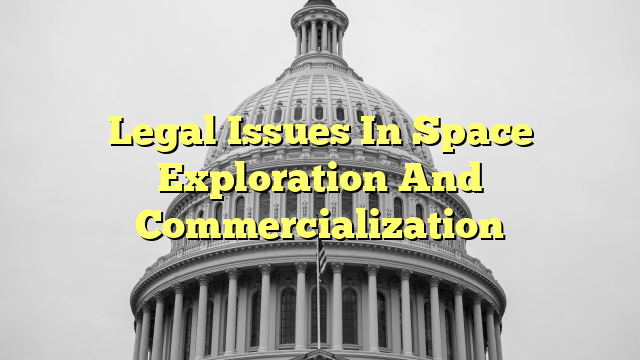Table of Contents
- Introduction
- Challenges in Space Exploration and Commercialization
- Laws for Space Exploration
- Conclusion
Introduction
Space exploration and commercialization are among the most exciting and rapidly developing areas of research and technology today. The potential to explore and make use of the universe outside our Earth is immense and offers endless new possibilities. However, even with all the potential opportunities, there are still numerous legal issues that must be addressed before this future can come to fruition.
Challenges in Space Exploration and Commercialization
Commercialization of Space
One of the biggest challenges with regards to space commercialization is that there is currently no regulatory framework in place to oversee it. Without any regulation, companies are free to do whatever they want and the potential for harm and exploitation is very real. This includes everything from irresponsible resource extraction to unsafe practices in the work environment. It also means that companies may try to take advantage of the lack of regulation to make money quickly, without any regard for the long-term effects of their actions.
Legal Issues in Space Exploration
In addition to the lack of regulation, there are also numerous legal issues that must be taken into consideration when embarking on space exploration and commercialization. These include questions of property rights, liability, and intellectual property. For example, who owns the resources found in space? Who is responsible if something goes wrong during a mission? How can companies protect the intellectual property associated with their space exploration projects? All of these issues must be addressed and resolved before any significant progress can be made.
Laws for Space Exploration
In order to address the legal issues mentioned above, a number of national and international laws have been created to regulate space exploration and commercialization. The most important of these are the United Nations Space Treaty (1972), the International Space Station Agreement (1998), and the Outer Space Treaty (1967). These documents govern the activities of countries in space, and the use of resources found there.
In addition to these international documents, each country has its own set of laws and regulations related to space exploration and commercialization. These laws can vary significantly from one country to another, and they can also be subject to change over time. As such, it is important to stay up to date on the latest legal developments in order to ensure that any space exploration or commercialization activities are carried out in accordance with the law.
Conclusion
In conclusion, space exploration and commercialization are exciting and promising fields of research and technology, but they also come with a number of legal issues that must be addressed. These include questions of property rights, liability, and intellectual property. In order to address these legal issues, a number of national and international laws have been created to regulate space exploration and commercialization. It is important to stay up to date on these laws in order to ensure that any activities in space are carried out in accordance with the law.
Answer to the Questions:
What is the problem with commercialization of space?
The main problem with commercialization of space is the lack of an overarching regulatory framework. Without any regulation, companies are free to do whatever they want and the potential for harm and exploitation is very real.
What are the major issues in space exploration?
The major issues in space exploration include questions of property rights, liability, and intellectual property.
What are the biggest issues in space law?
The biggest issues in space law involve the lack of an overarching regulatory framework, questions of property rights, liability, and intellectual property.
Are there any laws for space exploration?
Yes, there are both national and international laws that regulate space exploration and commercialization. The most important of these are the United Nations Space Treaty (1972), the International Space Station Agreement (1998), and the Outer Space Treaty (1967

